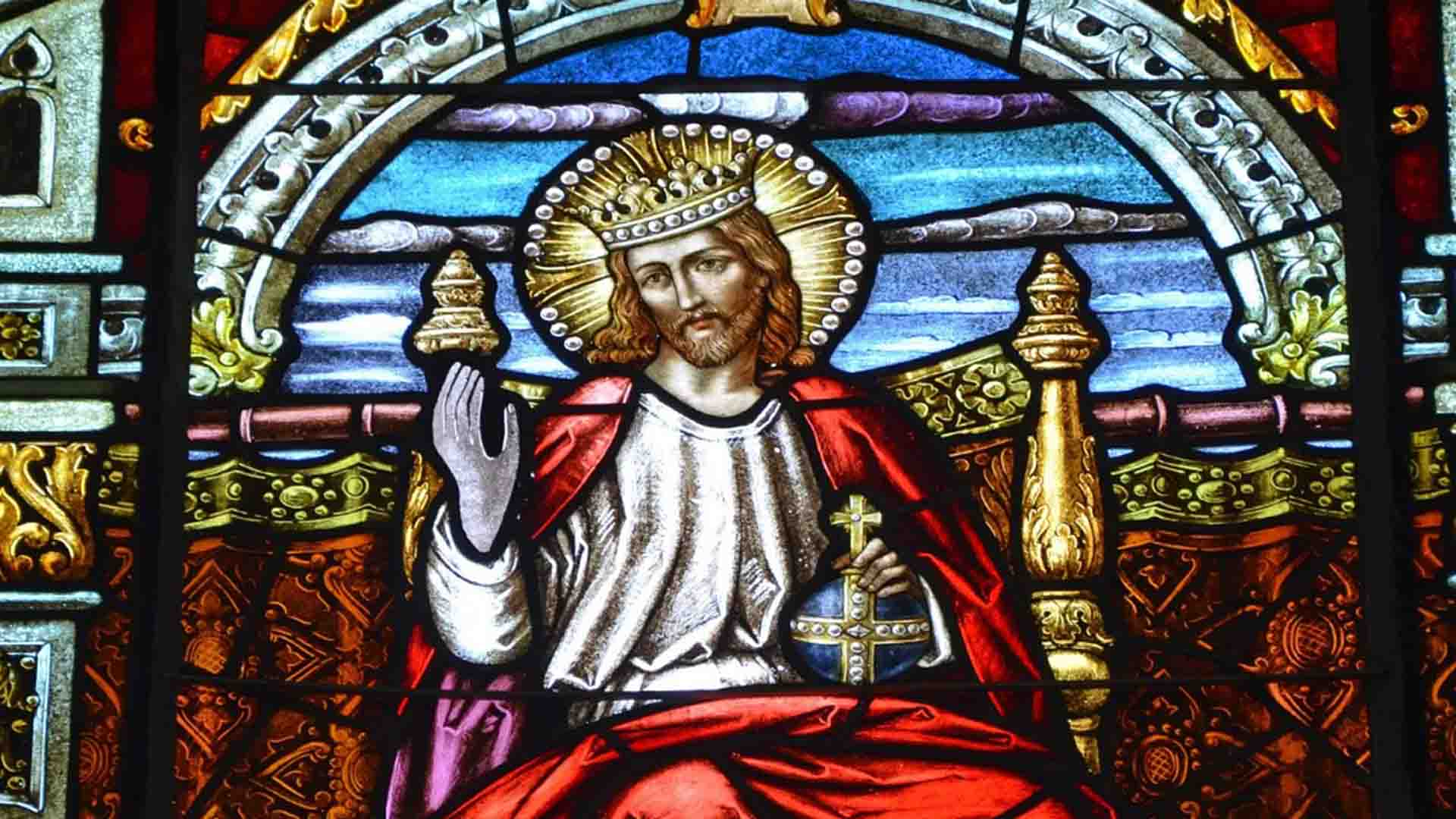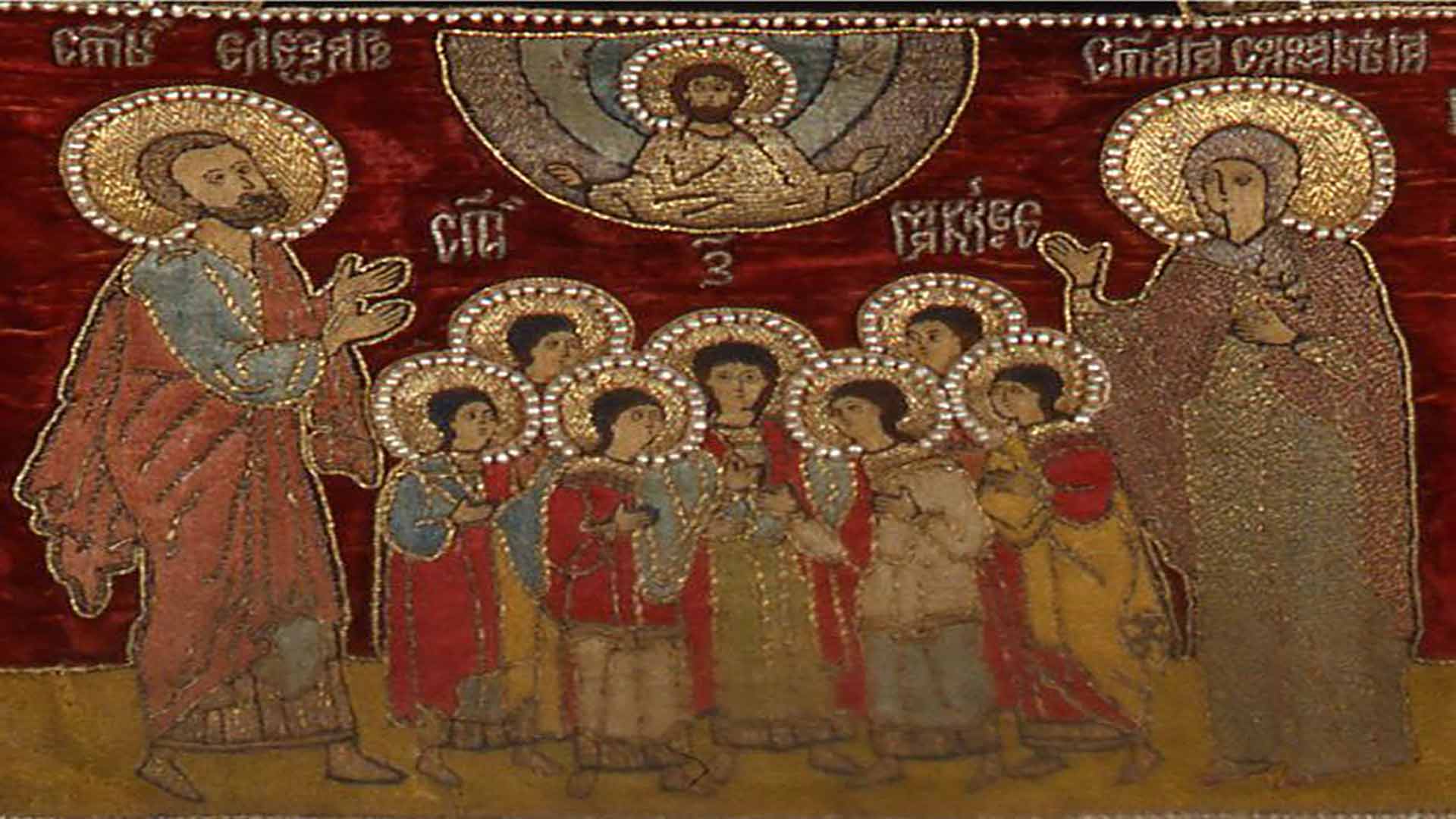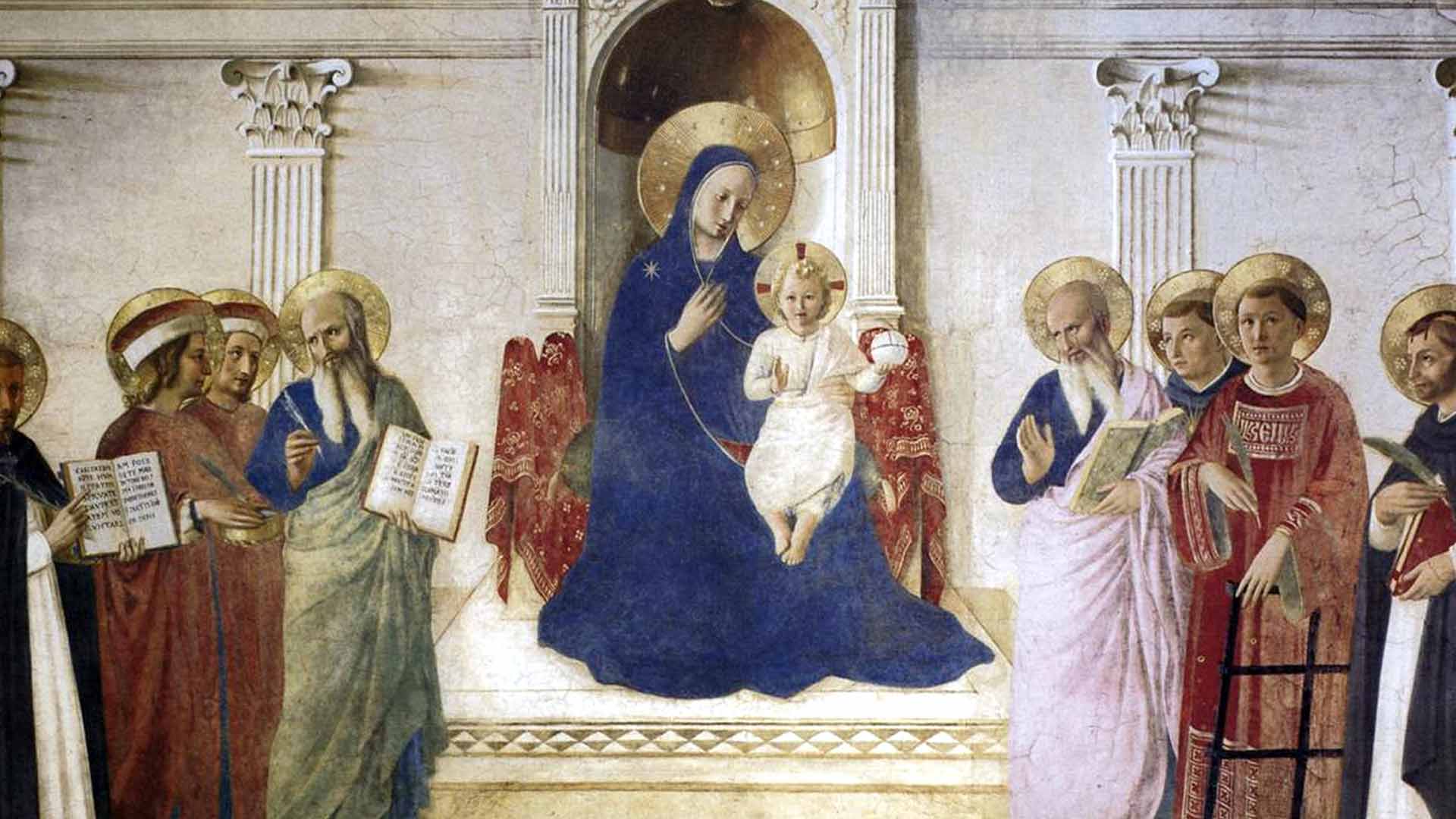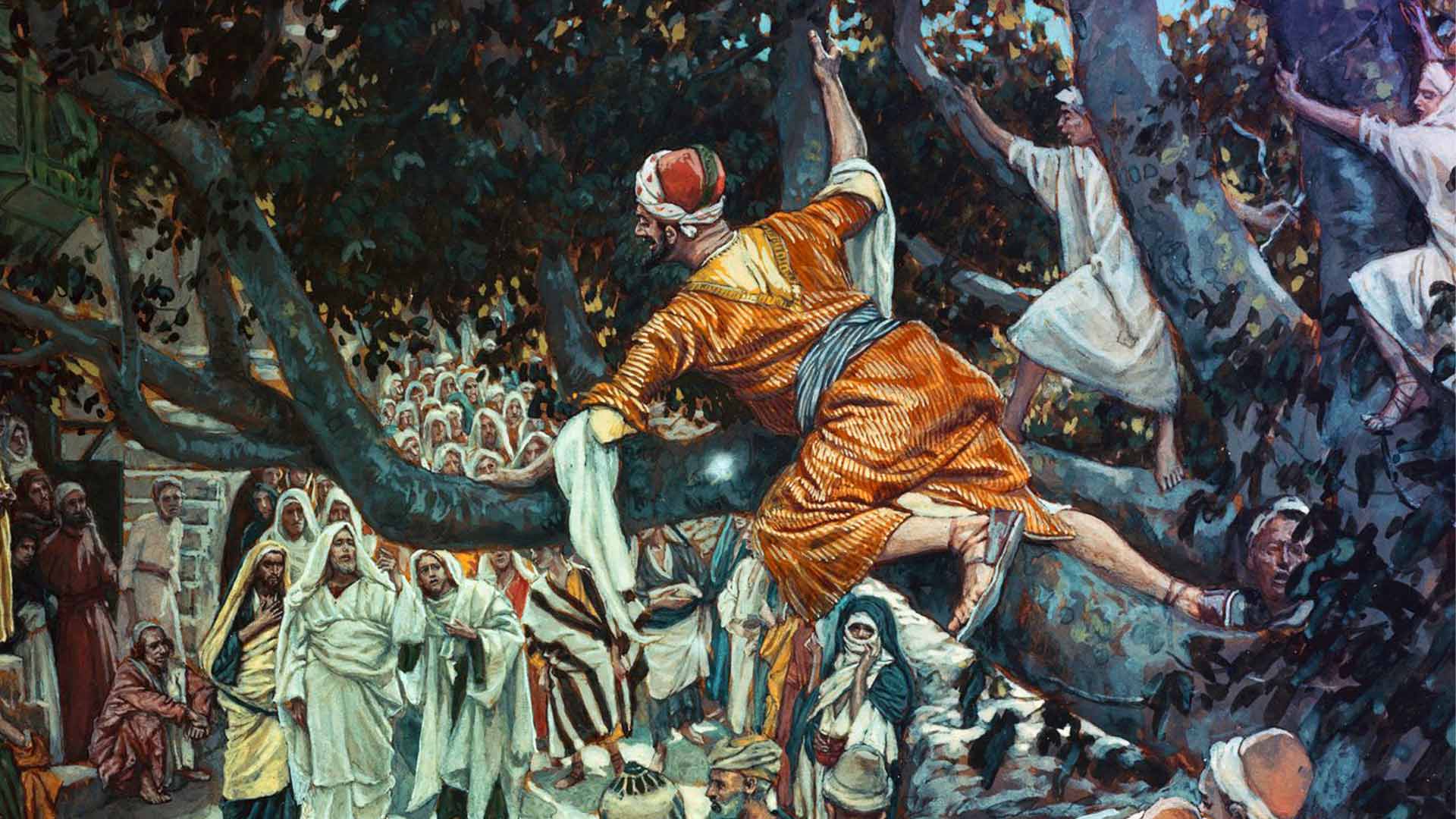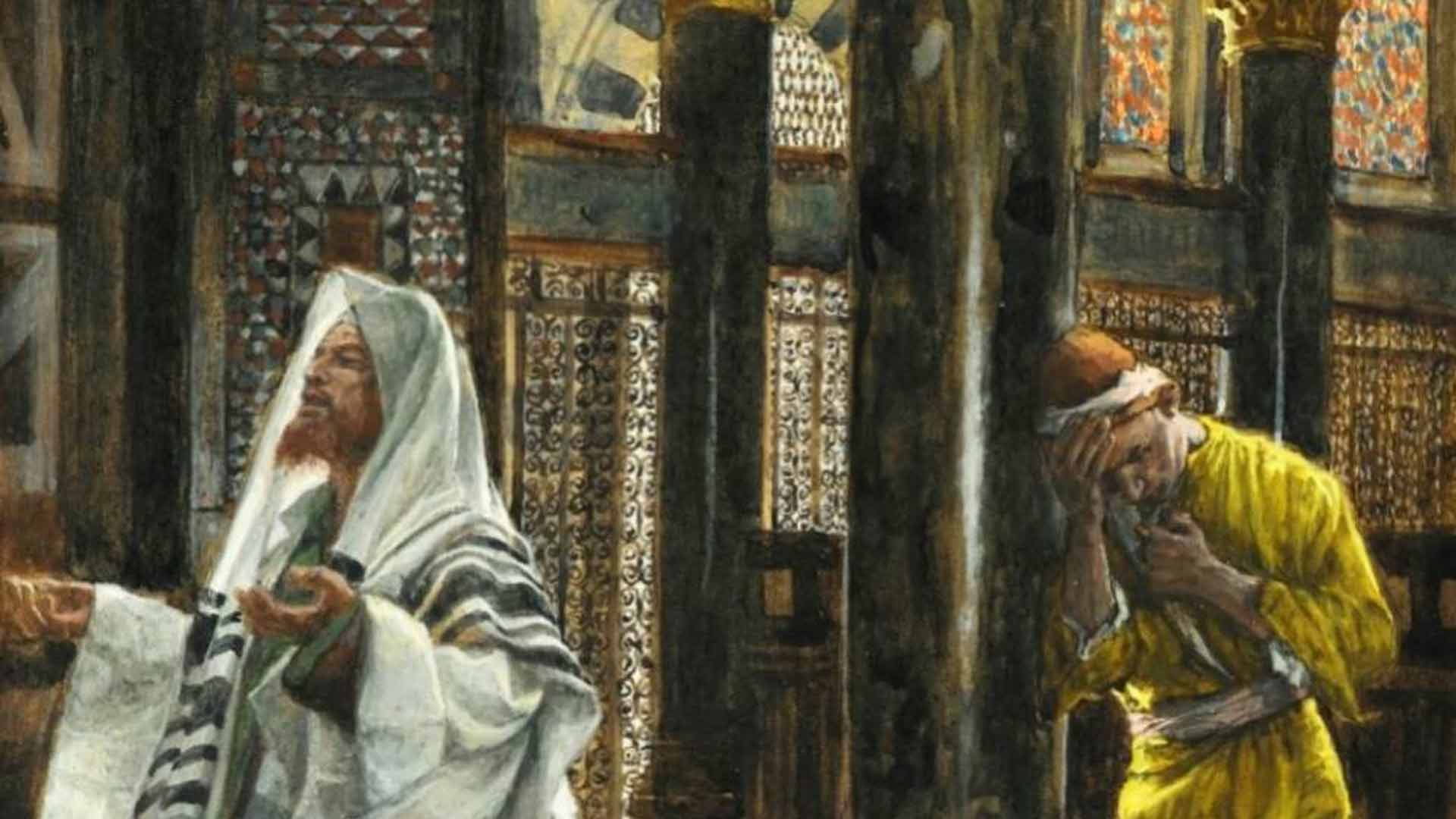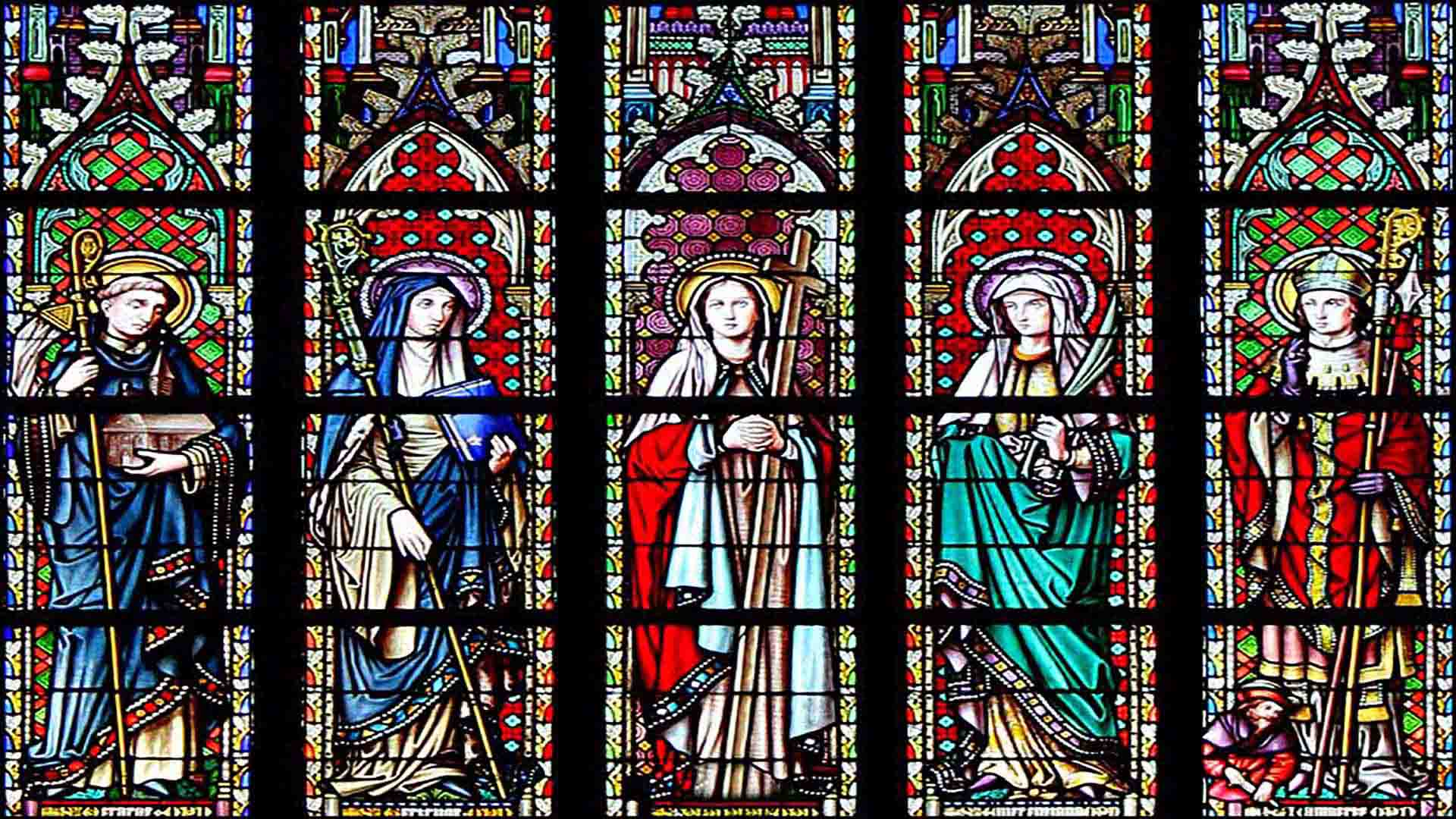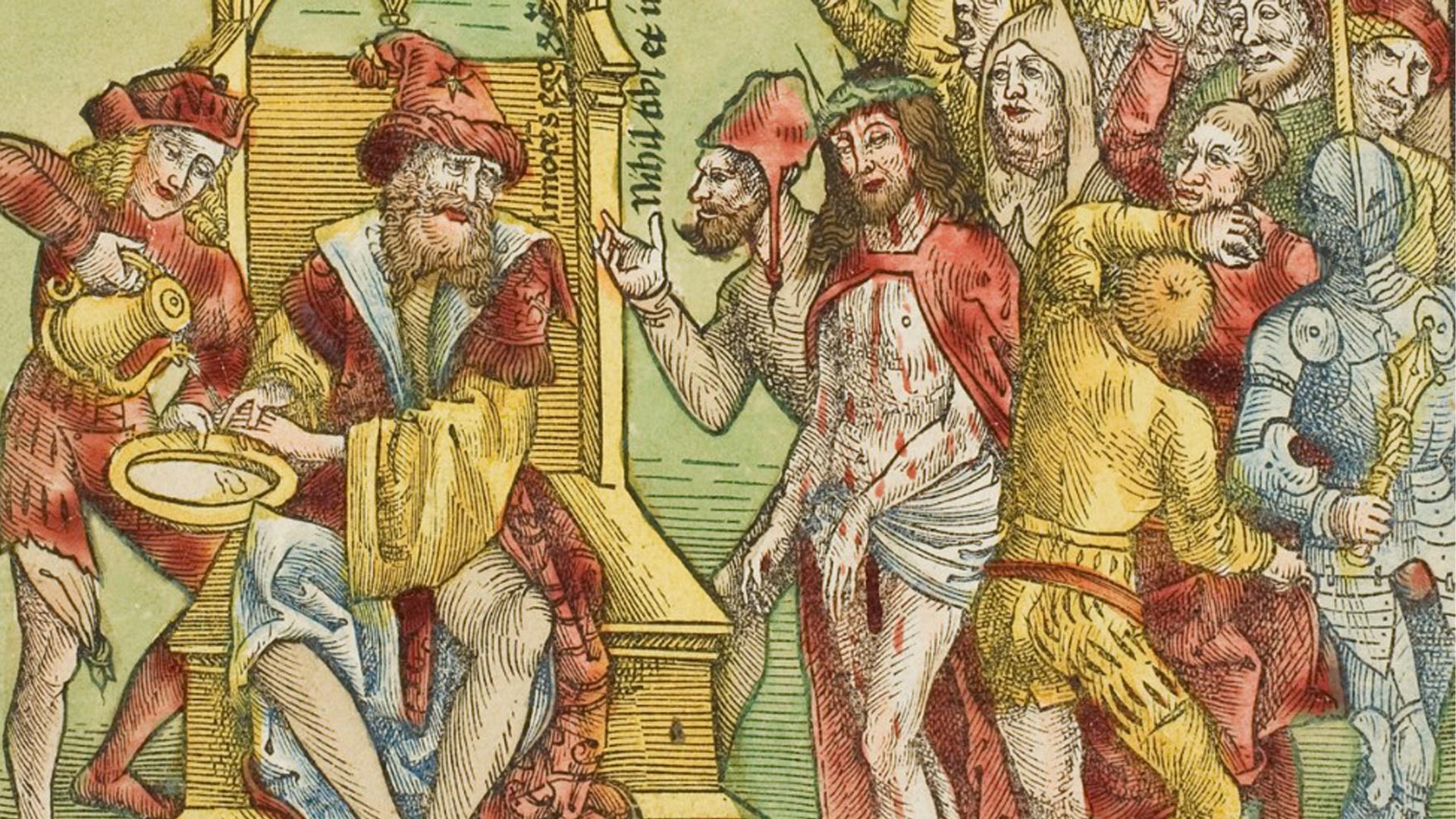Why a Feast of the Kingship of Christ?
November 20, 2022Save our Faith
There are only a few monarchies left in the world but the concept is not inimical to human nature. In the Christian tradition, the monarchical idea goes back to the days when, by God’s command and public acclamation, Samuel anointed Saul as king of Israel (c. 1021-1000 B.C.). Later, on finding him inept, he appointed David, who after Saul’s death, became king of the whole of Israel whose tribes he united.
The world over, monarchies were the most common form of government until the last century. In his encyclical Quas Primas (1925), however, it is not the form of government that Pope Pius XI brings into focus; it is the concurrent worldview that he finds problematic. Writing in the aftermath of World War I, when some key monarchies had been replaced by republics, the Pontiff pointed to a king “of whose kingdom there shall be no end.” (n. 5) Decrying the growing secularisation of society, he made it clear that, “as long as individuals and states refused to submit to the rule of our Saviour, there would be no really hopeful prospect of a lasting peace among nations.”
The issue of the said Encyclical marked the sixteenth centenary of the Council of Nicaea, where the divinity of the Word Incarnate – the foundation of Christ’s empire over humankind – was properly defined. Very significantly, the commemorative Encyclical proclaimed “Pax Christi in regno Christi” (“The peace of Christ in the kingdom of Christ”).
Biblical endorsement
Quas Primas notes that “it has long been a common custom to give to Christ the metaphorical title of ‘King’, because of the high degree of perfection whereby He excels all creatures.” But the Pope is also quick to clarify that “the title and the power of King belongs to Christ as man in the strict and proper sense too. For it is only as man that He may be said to have received from the Father ‘power and glory and a kingdom,’ since the Word of God, as consubstantial with the Father, has all things in common with Him, and therefore has necessarily supreme and absolute dominion over all things created.” (n. 7)
The are several Biblical references to Christ as King, one of them being by Psalm 72, which foretells that his kingdom will have no limits, and will be enriched with justice and peace: "in his days shall justice spring up, and abundance of peace... And he shall rule from sea to sea, and from the river unto the ends of the earth." (n. 8). The Prophets, too, give abundant testimony.[1] The doctrine of the Kingship of Christ found in the Old Testament is “even more clearly taught and confirmed in the New”. For instance, St Luke speaks of the Archangel announcing to the Blessed Virgin that she should bear a Son; that "the Lord God shall give unto him the throne of David his father, and he shall reign in the house of Jacob for ever; and of his kingdom there shall be no end."[2] (n. 10)
Finally, Christ Himself speaks of his kingly authority.[3] So, it goes without saying that “the Catholic Church, which is the kingdom of Christ on earth, destined to be spread among all men and all nations, should with every token of veneration salute her Author and Founder in her annual liturgy as King and Lord, and as King of Kings.” (n. 12)
King, Kingship, Kingdom
To the unconvinced of the need to call Our Lord ‘King’, St. Cyril of Alexandria explains how “Christ has dominion over all creatures, a dominion not seized by violence nor usurped, but his by essence and by nature.”[4] The Pope says Christ’s kingship is “founded upon the ineffable hypostatic union. From this it follows not only that Christ is to be adored by angels and men, but that to him as man angels and men are subject, and must recognize his empire; by reason of the hypostatic union Christ has power over all creatures. But a thought that must give us even greater joy and consolation is this that Christ is our King by acquired, as well as by natural right, for he is our Redeemer. Would that they who forget what they have cost their Saviour might recall the words: ‘You were not redeemed with corruptible things, but with the precious blood of Christ, as of a lamb unspotted and undefiled.’[5] We are no longer our own property, for Christ has purchased us ‘with a great price’;[6] our very bodies are the ‘members of Christ’[7].” (n. 13)

But what is the nature and meaning of Christ’s Kingship and His Kingdom?
Christ’s Kingship comprises a threefold power: legislative, executive and judicial. Christ, our Redeemer, is also a law-giver, to whom obedience is due;[8] those who keep his laws show their love for Him and shall remain in his love.[9] “Executive power, too, belongs to Christ, for all must obey his commands; none may escape them, nor the sanctions he has imposed.” He claimed judicial power as received from his Father[10], in which is included the right of rewarding and punishing all men living, for this right is inseparable from that of judging. (n. 14)
Yet, Christ’s kingdom is not earthly; it is spiritual and is concerned with spiritual things. “On many occasions, when the Jews and even the Apostles wrongly supposed that the Messiah would restore the liberties and the kingdom of Israel, he repelled and denied such a suggestion.” (n. 17) That is not to say that Christ has no place in in private affairs or in politics. Says the Pope: “It would be a grave error, on the other hand, to say that Christ has no authority whatever in civil affairs, since, by virtue of the absolute empire over all creatures committed to him by the Father, all things are in his power. Nevertheless, during his life on earth he refrained from the exercise of such authority, and although he himself disdained to possess or to care for earthly goods, he did not, nor does he today, interfere with those who possess them.” (n. 17)
All nations and all peoples are subject to Jesus Christ, the Universal King. In his earlier encyclical, Urbi Arcano (1921), Pope Pius XI decried the world’s folly in the following words: “With God and Jesus Christ excluded from political life, with authority derived not from God but from man, the very basis of that authority has been taken away, because the chief reason of the distinction between ruler and subject has been eliminated. The result is that human society is tottering to its fall, because it has no longer a secure and solid foundation.”
Lamenting that as long as the rule of our Saviour was repudiated, there would be no lasting peace in society. “If, therefore, the rulers of nations wish to preserve their authority, to promote and increase the prosperity of their countries, they will not neglect the public duty of reverence and obedience to the rule of Christ.” (n. 18)
Rationale
Pointing out that, historically, feasts have been instituted one after another “according as the needs or the advantage of the people of Christ seemed to demand”, Pope Pius XI implored our Divine King’s blessings. “That these blessings may be abundant and lasting in Christian society, it is necessary that the kingship of our Saviour should be as widely as possible recognized and understood, and to the end nothing would serve better than the institution of a special feast in honour of the Kingship of Christ. For people are instructed in the truths of faith, and brought to appreciate the inner joys of religion far more effectually by the annual celebration of our sacred mysteries than by any official pronouncement of the teaching of the Church. Such pronouncements usually reach only a few and the more learned among the faithful; feasts reach them all; the former speak but once, the latter speak every year – in fact, forever. The Church's teaching affects the mind primarily; her feasts affect both mind and heart, and have a salutary effect upon the whole of man's nature. Man is composed of body and soul, and he needs these external festivities so that the sacred rites, in all their beauty and variety, may stimulate him to drink more deeply of the fountain of God's teaching, that he may make it a part of himself, and use it with profit for his spiritual life.” (n. 21)
However, we need not wait for the Feast to venerate and adore Christ the King. We ought to seek Him through the year, under the Sacramental species; by public adoration of the Blessed Sacrament exposed, and by solemn processions (cf. n. 26). The Feast of the Kingship of Christ sets the crowning glory upon the mysteries of His life commemorated during the year.
[1] Isaiah (9: 6-7); Jeremiah (13: 5); Daniel (2: 44; 7: 13-14), and Zachary (9: 9)
[2] 1: 32-33
[3] Cf. Mt 25: 31-40; Jn 18: 37; Mt 28: 18; Apoc. 1: 5, 19: 16; Heb. 1: 2; 1Cor 15: 25
[4] Cf. n. 13
[5] 1 Pet. 1: 18-19
[6] 1 Cor. 6: 20
[7] 1 Cor. 6: 15
[8] Cf. Council of Trent, session VI, can. 21
[9] Cf. Jn 14: 15; 15: 10
[10] When the Jews accused him of breaking the Sabbath by the miraculous cure of a sick man. (Cf. Jn 5: 22)
The Goan Football Story
Apropos the forthcoming FIFA World Cup 2022, here are excerpts of a chat by José António Botelho, Jovito Lopes, Eddie Noronha and Sávio de Noronha with Óscar de Noronha, on the radio programme Renascença Goa.
ON: The World Cup is also an occasion for us to talk about football in Goa….

JL: Originally, football was brought to Goa by Father Robert Lyons, who had a school in Arporá, in the taluka (concelho) of Bardez. In Pangim, it is said that the Salesians of Don Bosco were the pioneers: Father Scuderi rode around the city on a bicycle and attracted the boys from the street. Also, the churches in Goa have fields where young people play. Therefore, football was an attraction for the youth.
In front of my house, in Fontainhas, it was a mud street. Nonetheless, we played football in the street. From 5 to 7 in the evening, we would get together and play with a ball made of socks. We didn't have the footballs we have today. We would also go and watch football played on the Police Grounds… Académica, Sporting, and other teams. As children, we didn't have any money, and we couldn't enter the stadium without a ticket. So, when someone we knew went there, we would enter in the shadow of these friends, let's say, on the sly…. Football was indeed a sensation. As kids, it was sensational to see someone play well, score goals, etc. And we had great players, like Alcântara, and others. It was a sensation.
ON: What was your involvement with football?

JAB: When I was a student at the Lyceum, some friends of mine played for Sporting Clube, which was based at Lar de Estudantes; and we were fans of Académica, so much so that later, in 1974, when I had my own team, Panvel, it was really a reincarnation of Académica…. We changed the name and played as Panvel, but at heart we were still Académica…. we even played wearing black shirts. It was football from the heart; it was more emotion and less training. Sometimes we didn't even have enough uniforms…. Earlier, the rule was that only one player could be substituted before half-time, and sometimes there was not even an extra shirt for the substitute. The substitute wore the same sweaty uniform of the player who had just left the field. It was more exciting from the player’s and manager’s point of view, but maybe not so much from the point of view of the show and the spectator...
ON: Undoubtedly, football has changed a lot over time…
JAB: Yes. In those days, if we won a match, we would at the most get bhaji puri and tea; but now it's quite different: you get paid a lot of money! In 1966, we followed the World Cup in England, listening to the radio reports. We got to see the finals, almost 6 months later, at Jardim Garcia de Orta, when someone brought a projector with the black and white film. Today, of course, you get to see the game in real time….
ON: Of course, things have changed a lot with technology, that is, with television; but in the days of the radio and newspapers, did the people here follow the happenings closely?
JL: Radio has made a big difference in Goa. When there were these Goan league games, they were held simultaneously in Vasco da Gama, Margão and Pangim. There were radio reports of all three games at the same time: which doesn't happen now. In those times they were the Ferroviários or independents, and there were many Portuguese playing; and the Académica too. And all the games were on the radio, and we already knew who was playing for which team; who won, who lost, from day to day… something that doesn't happen nowadays...
ON: What is the reason for this?
JL: That’s because there are games on television. People are more interested in English leagues than in the Indian leagues…
ON: Who are the big names of Goan football?
JAB: The first coach I remember is Cirilo Ferrão, who built Shantilal's team. Then Shanmugam, from Bangalore, and he was here as coach of Salgãocar. Among the Goan coaches, in addition to João Leite Melo, who was a player for Académica, and was also coach of my team, Panvel, and of Sesa Goa, Salgãocar, and, lately, I think he was coach of Cidade de Goa, which was a team of the present Sporting Clube de Goa. Among the players, Dominic Soares, that forward line of Vasco – ABCD – Andrew, Bernardo, Catão and Dominic Soares – and later, Arwin da Silva, goalkeeper, Jorge Abranches, Vasco, and others – although these are not Goans. But the four people I mentioned first were Goans, although Catão had made a career in Bombay before coming to Goa, Bernardo had been in Vishakapatnam before returning to Goa, and Tanzanian-born Dominic returned to Goa as his parents were from Goa. These were the good players I remember. Then, the other generation that mostly passed through Panvel were Brahmanand Sancoalcar, Rosário Rodrigues, Derek Pereira, Maurice Afonso, Silveira, Bruno Coutinho…. I don't know if we're going to have such players now.
ON: What would you say of the present generation?

SN: After the generation of Bruno Coutinho and Roy Barreto, who had a good combination and won many tournaments as players for the State of Goa and its clubs, in the next generation came Romeo Fernandes, Kelvin Lobo, Mandar Rao, Sahil Távora…. This generation had the opportunity not only to play football at a very high level in the gaming business in India, but they also started to earn a lot of money compared to the footballers of the previous generation, thanks to the Indian Super League (ISL), and this gave many young people the opportunity to make a football career.
ON: Who were the promoters of football in Goa?
JL: Lubé Távora had a team from Siolim, which was called “Kitem Fine”! Then, Académica was the student team. Everyone wanted to have that black shirt…. What a passion that was! And at the time, there were no other games. There was no cricket, there was nothing; It was just football, football, football.
JAB: People like Dr Alvaro Remígio Pinto; Bento Fernandes; Hermano Fernandes, from Santa Inez, they were all dedicated to the club cause; even Dr. Pinto, who together with Aranha, founded Académica; Father Chico was from Sporting and also from Lar de Estudantes, whose players he trained. He had a gift for talking to his men. Nowadays it's easier because we have managers trained to do that. So, a priest knowing how to do that then was rare and very important.
ON: Fortunately, today there are clubs, like Sporting Clube de Goa, that train young people!

EN: Our main objective is to promote young Goans. We have a senior team that is professional and one of the main clubs in the country. We also have a youth development programme, for teams under 20, under 18, under 16, under 14, and under 13. The team participates in championships organized by the Indian Federation and the Goa Football Association. We have an academy for children at the Don Bosco school in Pangim with which we have an agreement. In addition, we have adopted some schools – which means that we support them, providing technical staff and equipment…
ON: The Indian soccer leagues have aroused a lot of interest. What do you think of this?
EN: We are the only country in the world with two leagues, the I-League and the ISL. With the introduction of ISL, technically, each ISL team is allowed to have more than two foreign players. With this, the inclusion of Goan and Indian players in the team is restricted. In the Indian league only four foreign players can play, giving more opportunities for Indian players to participate. Due to this conflict, three Goan clubs – Sporting Clube de Goa, Dempo Sports Club and Salgãocar Sports Club – withdrew from the I-League some years ago. We hope that the All-India Football Federation will review the decision to have a single championship and that all Goan clubs get into the top division on merit…
JAB: Football control is in the hands of people who don't know anything about football, or don't know professional football. That's not going to change anytime soon. That's where the idea of ISL came from. The mistake was to let the I-League and the ISL continue. They should have done what Japan did: stop all football that existed and start again….
ON: Are Goans readily accepted at the national level?
JL: Only in the last few years there has been a problem. It is said that relations between the Goa Football Association and the Federation are not in good shape. But, by the way, the Indian team always had four players from Goa, which is not the case now, for several reasons…
ON: What is the experience of the Lusofonia Games?
SN: One of the best moments for football in Goa was when the Indian team, with the majority of footballers of Goan origin, won the gold medal at the Lusophone Games, in 2014, when they were held in Goa…
ON: What do you think of the future of football in Goa?
SN: As for the future of football in India, and in Goa in particular, I think that the official organizers of the game in the State of Goa have to reach a consensus with the national federation and clarify what doubts they have against each other. At the moment, things are not going very well but I think the game has to be given the highest priority if it has to improve…
JL: There needs to be a revolution in our thinking. The approach must be totally professional: they must let professionals and technicians execute their vision.
Other participants in the original chat in Portuguese, https://www.youtube.com/watch?v=uyJh4smJV2M : Julio Fernandes, Yolanda de Sousa, and Vera de Noronha.
(First published in Revista da Casa de Goa, https://casadegoa.org/revista/ii-serie-n-o-19-novembro-dezembro-de-2022/
Series II, No. 19, November-December 2022)
Lead, kindly Light!
November 13, 2022Mass Readings
Eschatological texts on yet another Sunday correlate the end of the liturgical year with the end of the world. There is now only one Sunday left between today and the joy of Advent beginning on 27 November. Meanwhile, to enable us to sing with full-throated ease the victory song of Christ the King on 20 November, His Feast, the Church invites us to first imbibe the Biblical teachings about the end times.
The First Reading is taken from the Book of Malachi (3: 19-20). The debate on whether or not Malachi is really the author’s name (in Hebrew, it simply means, "my messenger") pales into insignificance when we note the core of the text: a chastisement of the Israelites, which, unfortunately, included the priests, too, in post-exilic Jerusalem for their lax religious and social conduct. Today’s passage is brief but its message loud and clear. It dwells on the day of Judgment, when the wicked ones will, like the stubble, be devoured by the flames; whereas, for those who fear the Lord, “the sun of righteousness shall rise, with healing in its wings.” No two ways about it.

Malachi is the last of the eighteen prophetic books and also the last book of the Old Testament. In pointing to the day of the Lord’s coming, it carries a message of hope. Some five hundred years later, our Divine Lord – “the sun of righteousness” – came into the world to address people of goodwill. Thus, the Book of Malachi builds a bridge with the New Testament; and given the absence of any other prophetic record in the intertestamental period, it assumes even greater significance.
The Second Reading, from St Paul’s Second Letter to the Thessalonians (3: 7-12), addresses the community’s slothful ones. He urges both pastor and pauper to eat their food by the sweat of their brow. Whereas the Apostle of the Gentiles was very concerned about setting a good example himself, his followers had begun taking things for granted and even lived off the charity of fellow Christians.
Does that mean anything to the twenty-first century Christian community? If we have begun to look like wayward children basking in past glory while letting the present slip through our fingers, we are in for trouble. It is high time we pondered on whether we, leaders and followers, parents and children, priests and laity, are exerting ourselves enough to ensure that tomorrow will belong to us! Let us get our act together, that His Kingdom comes here on earth and thereafter we deserve to inherit Heaven. No gains without pains!
In the Gospel (Lk 21: 5-19) we hear the words that Jesus spoke to His Apostles when His Passion and Death was at hand. Just in case they had thought that a life in the Lord’s service would be a cakewalk, Jesus forewarns them that proclaimers of the Good News might in fact be assaulted, convicted, jailed, or even killed. In other words, following Christ involves renunciation and suffering; we are called to be committed, to take an unambiguous position, to not run with the hare and hunt with the hounds! It’s a little cross we willingly bear, as an infinitesimal share in the mighty Cross that Our Lord and Master carried to Calvary.
Through all of it, we must fix our gaze on His Divine Face and not on the façade of the temple “adorned with noble stones and offerings”. Vanities will meet their nemesis: “there shall not be left here one stone upon another that will not be thrown down.” Precisely when this shall come to pass is not clear as crystal, yet the secret of our holy success will depend on our sticking to the Lord through thick and thin. Behold the Lord’s words of caution: “Take heed that you are not led astray; for many will come in my name, saying, ‘I am he!’ and ‘The time is at hand!’ Do not go after them. And when you hear of wars and tumults, do not be terrified: for this must first take place, but the end will not be at once.”

Jesus is our Light and our Life! Lead, kindly Light, even as we witness nations rising against nations; earthquakes and famines, floods and pestilences devastating the earth. When we watch the Light amid the encircling gloom, we will not be afraid. We can be sure that we will never be left to the designs of the evil one, for when we are with the Lord – the Lord is with us! – we have nothing to fear! You must not draw back when, horror of horrors, “you will be delivered up even by parents and brothers and kinsmen and friends, and some of you they will put to death.” And, miracle of miracles, you and I need not even “meditate beforehand how to answer; for I will give you a mouth and wisdom, which none of your adversaries will be able to withstand or contradict,” says the Lord.
As the liturgical year draws to a close, it is highly recommended that we take stock of our spiritual baggage and ponder on the inescapable fact of our individual and collective end, praying thus with Cardinal Newman:
[A]long the narrow, rugged path,
Thyself hast trod,
Lead, Saviour, lead me home in childlike faith,
Home to my God.
To rest forever after earthly strife
In the calm light of everlasting life.
Memories of Panjim
November 9, 2022Panjim,Memories
In the 1960s and 1970s, Panjim was the picture of calm and sweetness, of simplicity and decorum. The city stretched from Ourém Road up to the Military Hospital in the east-west direction and from the riverine avenue up to Altinho and Batulém in the north-south line. As a garden city on the water’s edge, its rhythm paced by the gentle Mandovi, Panjim had an identity and a charm all its own.

When I was a child, I lived in the heart of Panjim, next door to the centuries-old Adil Shah Palace and under the hypnotic gaze of Abade Faria. My day dawned with the chirping of birds, soon to be followed by the loud siren of the Bombay steamer docking at the Customs pier. The hustle and bustle of the passengers, the clatter of the baggage handlers and the taxis honking on Vasco da Gama Avenue (now Dayanand Bandodkar/DB Marg) roused the 40,000 residents of Panjim still wrapped in sleep, reminding them of their morning tasks, especially of school.

It was now as if the frenzy of the Indian metropolis had disembarked in the Goan capital! The din quickly drifted to the main arteries, Dom João de Castro Avenue and Afonso de Albuquerque Street (now Mahatma Gandhi Road/MG Road), where the bureaucracy and business establishments were situated. Upon the departure of that steamer midmorning, the city regained her composure; she lunched and enjoyed her siesta, and by 4 o'clock resumed her daily battle, which ended around 8 in the evening.
Panjim enjoyed an organic lifestyle only a wee bit different from that of the countryside! Hot bread and fresh fish went door to door; and at the municipal market they sold local produce from villages nearby. But it wasn’t only about what the people bought; it was equally about what they thought – about how they treated one another and the surroundings. They displayed civic sense and were a God-fearing lot. That church, mosque and temple were practically on the same street spoke volumes of communal peace and harmony in the city.

A Japanese writer once labelled Panjim the ‘most unIndian of all Indian cities.’ In his mind’s eye he probably saw an urban landscape devoid of skyscrapers, filth, and chaos. But had he perhaps noted the spiritual architecture of the citizenry? Panjimites were not caught up in a rat race; they lived modestly and contentedly, fearing none, much less the police, a ramshackle force anyway! Burglary was rare, and murder or suicide almost unheard of. Conscience and benevolence – or better, munisponn (humanity, in Konkani) – reigned. In the words of a fado (Portuguese folk song): ‘If someone humbly knocked at our door, they would sit with us at table; and even in the poor comfort of our home, we had loads of affection to offer.’ In short, the townsman didn’t need much to brighten his existence.
 Panjim was all things to all people: a nature lover’s dream, a pedestrian’s delight, a balm for a troubled mind. There were open spaces and colonnaded footpaths. Traffic was simple and light – motorcycles, bicycles, even bullock carts, and automobiles ranging from the popular Volkswagen to the luxurious Cadillac. These were the last of the Mohicans that had emerged, quite paradoxically, from the Economic Blockade; in a way, they denoted the Goan cosmopolitanism.
Panjim was all things to all people: a nature lover’s dream, a pedestrian’s delight, a balm for a troubled mind. There were open spaces and colonnaded footpaths. Traffic was simple and light – motorcycles, bicycles, even bullock carts, and automobiles ranging from the popular Volkswagen to the luxurious Cadillac. These were the last of the Mohicans that had emerged, quite paradoxically, from the Economic Blockade; in a way, they denoted the Goan cosmopolitanism.
Panjim was unique; it prided itself on single items: on one daily in Portuguese (O Heraldo) and in English (The Navhind Times); on a radio station (All India Radio) and a music academy (Academia de Música) which had nowhere to hold its annual concert other than at the only public hall (Institute Menezes Bragança). Likewise, Panjim was proud of its one and only three-star hotel (the Mandovi), of its ice-cream shop (Eskimo), and its South Indian restaurant (Shanbhag). Just one cine-theatre (Nacional), one bookstore (Singbal), and one public library (Central) catered to its citizens. For their healthcare needs, they went to the medical college hospital (Escola Médica). Panjim’s children depended on one public ground and football stadium (at Campal) and its adults on their Hyde Park (Azad Maidan) to go to yell their guts out. And children and adults alike enjoyed the evening breeze at the municipal garden (Garcia de Orta).
The quiet beauty of that public garden, the city’s oldest and largest, is etched on my memory: as kids, we jumped there with excitement while our elders bantered back and forth, comfortably seated on self-appointed, gender-segregated benches. From the bandstand, where the navy orchestra and others performed occasionally, I remember naively shouting slogans (“Tujem mot konnank? – Don Panank!”) in the runup to the Opinion Poll in 1967! There were cafés and bars, taverns and little gaming houses thereabouts; and some distressing sounds of tu-tu-main-main at a nearby newspaper office always wafted into the garden. None of this must have ever solved the city’s problems of scarcity and costliness, of poverty and drunkenness! The latter two could be starkly seen in a fringe area dubbed Tambddi Mati (Red Earth), thanks to its untarred alleys and the little red lights on its porches.
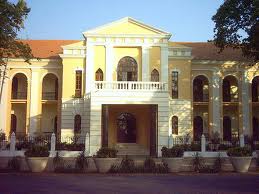
Panjim, therefore, was no garden of virtues. Its relative insularity had prompted me to leave for a city abroad – I was peeved about being everybody's business – until I changed my mind fearing that, meanwhile, my city would become another Mumbai – like nobody’s business! At any rate, the city had already started to expand westward into Miramar and Dona Paula while apartment blocks were quietly replacing houses in the city centre. There was a bridge on the Mandovi and a bus stand in the middle of the Pattó marsh; on the other hand, the sewer network lay incomplete, power outages were common, and piped water was restricted. Pure air was no doubt a saving grace; but then again, in the rains, Panjim would suddenly become Venice!
Panjim was petite, yet many of its sites stayed put on my bucket list. The stairways to Alto dos Pilotos and Escadinhas de Pedras Soltas resembled picture-postcard Lisbon – except for their state of disrepair. The likes of Saraswati Mandir, a library from the post-Republican days, were dimly lit and crowded. And while Tribunal da Relação (High Court) was a charming building adjacent to my house, I never visited it, petrified as I was by the magistrates’ stern faces. In much the same way, I was awed by the Arquivo Histórico (State Archives), but its documents half a millennium old were an ocean that my little bucket could not hold.

Who can ever forget the five-block Lyceum complex at Alto de Guimarães? Seniors told me that it was once reminiscent of the millennial Portuguese university town of Coimbra; but alas, the spirit had moved – only the shell remained. Worse was the fate of the Senado de Goa (municipal chamber), a distinctive building with a clock tower and hemmed in by gardens; it was torn down on flimsy grounds, so all that one can see now is a gaping space. What’s worse, the city never again got a town hall to match. These and some other facets were thus beyond my little self.

Even so, I eventually came to love and identify myself with the city. People of different creeds lived here in mutual respect. And as though time and tide waited for ever, they happily stopped in their tracks to exchange pleasantries – not to forget that men took off their hats to ladies without ado! Time was when baptisms, birthdays, and funerals were major events; and in those pre-television days, a stroll on Miramar beach at sunset, or a ride to Campal on goddia-gaddi (horse carriage) was all it took to dispel the ennui.

The rest of the magic was left to the cultural calendar to pull off. The Carnival parade, the street dances at clubs Nacional and Vasco da Gama, and the annual quermesse (open-air fair) at Fontaínhas were eagerly awaited. The Way of the Cross wending its way from the iconic Church of the Immaculate Conception up to Paço Patriarcal (Archbishop’s Palace) at Lent; the candle procession streaming the other way around, in October; Christmas celebrations et al were sights to behold. Holi, Ganesh and Diwali brought in traditional delicacies from Hindu friends. And all of this contributed towards a sweet spirit and the joy of living in Panjim.
Forty years on, Panjim is an entertainment hub – one big casino, garish, noisy and manic – which the Covid-19 virus briefly disrupted as only Covid can. The ensuing lull, however, helped me uncover the face of my city. I began to feel a homesickness for that time in the past when we faced shortages of sorts while the world seemed to be enjoying abundant life. Today, this newfound calm and sweetness, simplicity, and decorum make me feel we were never short of anything. No wonder Panjim was the apple of the eye of every Goan worth his salt!
(First published in The Peacock Quarterly, Panjim, July 2022. Reprinted by The Goan Review, Jan-June 2023 https://online.fliphtml5.com/cmlao/eron/?1681654486031
Notes
Abade Faria, or Abbé Faria, refers to the Goan priest José Custódio de Faria (1756-1819) celebrated as ‘Father of Hypnotism’. A statue depicting him in the act of hypnotising a lady was erected in 1956.
Academia de Música (1952), now Kala Academy, was the first professional music academy in Goa, set up under the baton of Europe-trained maestro António de Figueiredo.
Adil Shah Palace was the official residence of the Portuguese viceroy/governor-general (1759-1918). It continued as the seat of government and housed the legislature (pre- and post-1961). An apt extension was built in 1970. The palace is now a museum.
Alto dos Pilotos and Escadinhas de Pedras Soltas (literally, ‘Pilots’ Height’ and ‘Loose Stone Stairs’, respectively) are two of Panjim’s many stairways. The former is located behind Fazenda (Revenue Office) building and the latter in Fontaínhas/Mala ward.
Arquivo Histórico (1595) was first curated by Diogo do Couto, co-author of Décadas, an official history of the Portuguese in Asia and Africa.
Azad Maidan, formerly Praça Afonso de Albuquerque, had a monument to the Portuguese conqueror; now rededicated to Tristão Bragança Cunha, the ‘Father of Goan Nationalism’. A Martyrs’ Memorial was added in the 1970s.
Bombay steamer was a coastal service between Goa and Bombay. Several companies ran it for a century beginning from the last quarter of the 19th century.
Campal, meaning ‘a clearing’, is the area originally developed by viceroy Dom Manuel de Portugal e Castro (1827-1835).
Central Library began as Pública Livraria (1832) and was attached to Instituto Vasco da Gama (1925-1959). Renamed Central Library in post-1961 Goa, it is now housed in a state-of-the-art building at Patto Plaza.
Church of Our Lady of the Immaculate Conception is an iconic structure overlooking the city.
Clubs Nacional and Vasco da Gama were established in the early 20th century, the former largely sponsored by natives and the latter by Panjim-based continental Portuguese.
Economic Blockade (1954-56) imposed by the Indian Union prompted then Portuguese Goa to accelerate agricultural development, import of goods (including automobiles), and start direct flights (Goa-Lisbon-Goa, via Karachi).
Escola Médica, short for Escola Médico-Cirúrgica de Goa (1842), was Asia’s first medical school. Located at the Palace of the Maquinezes, it added a hospital building in 1927, now the headquarters of Entertainment Society of Goa (ESG). It was renamed Goa Medical College in the 1960s and shifted to Rajiv Gandhi Medical Complex, Bambolim, in the 1990s.
Garcia de Orta Garden is named after the Portuguese Jewish botanist and author of the seminal Colóquios dos Simples e Drogas da Índia (1563). He owned an estate in the old Goan capital and had the island of Mumbai on lease from the king of Portugal.
Menezes Bragança Institute, formerly Instituto Vasco da Gama (1871-1963), is regarded as one of Goa’s finest cultural institutions.
O Heraldo, founded by Messias Gomes, in 1900, was the first daily published from the Portuguese colonies; now Herald, published almost exclusively in English, since 1983.
Opinion Poll, the first of its kind in India, was held to ascertain the wishes of the then Union Territory of Goa on the proposed merger with Maharashtra. The popular, anti-merger slogan meant: ‘Your vote?’ – ‘For Two Leaves, for sure!’
Paço Patriarcal, or Patriarchal Palace, is the official residence of the Archbishop of Goa and Daman, who holds the title ‘Patriarch of the East Indies’.
Saraswati Mandir, on 18th June Road, is one of the many libraries set up by Hindu trusts in the new era of political and religious freedom under the Portuguese Republic (1910).
Senado de Goa (1511) was set up on the lines of the municipal senate of Lisbon.
The Navhind Times, founded in 1962 by mining magnate Vasantrao Dempo, is the first English-language daily to be published from Goa.
Tribunal da Relação (1544), had jurisdiction over the Portuguese Eastern Empire (Africa to Japan). It was downgraded to a Judicial Commissioner’s Court under the Indian Union and became a Bench of the Bombay High Court in 1982.
Steadfast in Christ
When the Greek emperors ruling over Palestine wished to impose their gods on Israel, monotheistic Israel vehemently rejected their overtures. The First Reading’s (2 Macc 7: 1-2, 9-14) description of the bid to convert seven brothers (now the Saints Maccabees) and their mother (a foreshadowing of our Blessed Mother) [1] to idolatry is pregnant with meaning. One of the siblings says in no uncertain terms that they are “ready to die rather than transgress the laws of our fathers.” If the earthly king kills them, the King of the Universe will raise them up to an “everlasting renewal of life.” They regard sufferings as nothing because they regard God as their everything; and they do so with the hope of their resurrection to life!
How many of us do readily sacrifice vain human bonds and put God first in our life? On the contrary, we often take God for granted while eager to satisfy fellow humans, especially if there are material benefits at stake. We readily bend over backwards for fear of displeasing or antagonising friends and relatives, and glibly say ‘God will understand’. Such opportunism is most displeasing to the Lord for, taking Him for granted could eventually lead to denying Him, Jesus Christ, the God of Life and Resurrection.
On the other hand, believing in the living God involves a wholehearted acceptance of the revealed message. The Gospel (Lk 20: 27-38) underlines that “He is not God of the dead, but of the living; for all live to Him.” Even this may remain as words, words, mere words, if we do not open our minds and hearts to Him. In the world today, instead of subjecting ourselves to God and His teaching, alas, how many bend before human authority, misleading though their teachings may be; and how casually they do so – as though God does not exist!

While Maccabees speaks of the apparent riddle of the seven brothers, the Sadducees mentioned in the Gospel present a teaser. A woman marries seven brothers in succession and is childless: whose wife will she be in Heaven? It is to be noted that, as against the Scribes and the Pharisees, the Sadducees (who belonged to the higher echelons of the Jewish priesthood) did not believe in the resurrection; hence their question. But then, Jesus takes the opportunity to educate them on the resurrection and eternal life: they are both for real, yet it is not a material reality like the one lived on earth; the resurrected will be akin to angels!
Resurrection and Eternal Life may well be among the most difficult realities for the human mind to accept. In our positivist age, many wish to be known as men and women of science rather than of faith. In fact, there is no antagonism between religion and science, but there are many who wish to drive a wedge between the two. To every doubting Thomas, therefore, St Paul’s prayer in 2 Thess 2: 16 – 3: 5 is: “May the Lord direct your hearts to the love of God and to the steadfastness of Christ.”
[1] Although unnamed in 2 Maccabees, the mother is known variously as Hannah, Miriam, Solomonia, and Shmouni in the Catholic Church.
Banner: The Holy Seven Maccabees, their mother Solomonia, and their teacher Eleazar (Russian veil icon, 1525)
Lux in Domino!
October 30, 2022Save our Faith
The Pastoral Bulletin of our archdiocese is once again in the spotlight. This time around, using Cardinal Newman’s words ‘Lead, kindly Light’ for its title, the editorial (Vol. LX, No. 20, 16-31 October 2022) encourages Catholics to ponder on Diwali, the Hindu festival of lights. Now, light is a universal symbol, possibly one of the most powerful across religions and cultures, so we might shortly be invited to ponder on what light means to the Jews, Muslims, Buddhists, Zoroastrians, and why not, to communists, anarchists and satanists as well! Such efforts at political correctness are sure to propel Renewal into the global spotlight.
The spotlight per se is not the issue; readers are afraid of the bulletin's current editorial policy blocking the Lord’s light. The main purpose of a pastoral publication is to be a beacon to the sheep, guiding them to the right pasture. On the plea of enlightening the sheep, the editor has steered them to other pastures instead. Is this the mandate the sacerdotal class has received from Our Lord Jesus Christ, who said, “I am the Light of the World. Whoever follows me will never walk in darkness but will have the light of life.” (Jn 8: 12)?

The impugned editorial speaks for itself. In a brief introductory paragraph, the editor reports his Divine Master as only one among equals. The remainder of the two-page leading article is divided fourfold: “Celebrations surrounding Divali”, expatiating on the five days of the festival; “Symbolism of Divali”, unravelling four key figures; “Christian Attitude towards Divali”, which carries the editor’s self-invitation to share in the joy and celebration of the Hindu community; and, finally, “Christian Understanding of Light”, in which he barely touches on the issue of Christ’s light at baptism. Earlier, he put the dipa and the nur Allah on par with the Paschal Candle… An absolute melange!
What ought to be our attitude towards the non-Christian festival of lights? According to the editor, “Christians could visit their friends and neighbours during Divali. They need not participate in the religious and faith dimension of the festival but they can surely participate in the social and cultural dimension of the festival.” It isn’t a ‘must not’ (negative obligation) but a ‘need not’ (absence of obligation); so, one is not required to do the thing, especially if one does not want to, but can do it if one wants to. One is completely free to act at one’s own discretion, no holds barred.
Beneath that poorly disguised disclaimer lurks the editor’s tacit approval. Note how over half of the editorial is dedicated to the “religious and faith dimension of the festival” – precisely the thing that Christians “need not participate in”! The lay faithful for their part have traditionally engaged in “the social and cultural dimension”, incurring no censure, by cordially greeting neighbours and/or friends. As a friend of mine says, it is a pity that “good sense observed by the lay faithful since times immemorial is shockingly being violated now by some priests and nuns with all their theological preparation.”
The freethinking editor goes on to suggest as follows: “The Christian could move further from the mere ritual of the festival to a better knowledge and understanding of the festival. The Christian could discover the richness of the symbolism, which crosses the boundaries of religion.” For God’s sake, what boundary crossing is that? A euphemism for a vague, universalist mysticism supposedly superior to all religions? It suggests that pastors have tasted it, so as to feel stimulated to ‘shepherd’ the flock…, er, away from the reality of our religion and of the Living God! What a travesty of our Faith! Is there nothing sacred anymore?
The final step in the editor’s flawed catechesis is here: “Organize inter-religious prayer meetings”, using Diwali “as a forum and an occasion to express solidarity with our Hindu brothers and sisters. Hence, inspired [sic] and dialogue on symbolisms of the festival, people from different faiths could get themselves together for a better bonding and understanding as humans and citizens.” Leaving the broad use of ‘faith’ for another day, what you have there is a mirage!

The said instruction sends the sheep not just to unknown pastures; sadly, it sends them out to the deep sea without a compass! On the one hand, Nostra Aetete, which encourages the study of other religions, states that “dialogue and collaboration with the followers of other religions” has to be “carried out with prudence and love and in witness to the Christian faith and life”. On the other, who can deny that our very own pasture is still relatively unknown to our sheep – largely through the fault of the same priestly class? And how impressive is our “witness to the Christian faith and life”? “I am the Way, the Truth and the Life”: are they words, words, mere words?
Apropos Nostra Aetete, which motivated the establishment of the Secretariat for Non-Christians, later called ‘Pontifical Council for Interreligious Dialogue’, may I point out that it was recently renamed ‘Dicastery for Interreligious Dialogue’, and not Dicastery for Culture and Education, as the editorial states! And there is more. If one “need not participate in the religious and faith dimension of the festival”, why “organize inter-religious prayer meetings”? And, pray tell, what “people from different faiths could get themselves together for a better bonding and understanding as humans and citizens”? For better bonding as humans, there’s nothing better than plain old good sense; and as citizens, we go by the Constitution. So, something terribly wrong there; or maybe, as Lord Polonius says in Hamlet, ‘Though this be madness, yet there is method in it.”
We have detected the first part; but what about the ‘method’? Execution of new-fangled notions by clerics enjoys at least silent consent, if not total approval, from the ecclesiastical authorities; but for fear of opening a Pandora’s box, the laity have been kept in the dark, not to say left in the lurch. It is indeed the intricate art of the slow reveal, although it is already quite evident that a new religion or a new church is on the horizon. The rest of us, however, are confident that “nothing is covered up that will not be uncovered, and nothing secret that will not become known. Therefore, whatever you have said in the dark will be heard in the light, and what you have whispered behind closed doors will be proclaimed from the housetops.” (Lk 12: 2-3)

Is it not abundantly clear that Renewal is sponsoring an eclectic mix of religions? This Diwali, WhatsApp images declaring Jesus as the Light of the World – and yet with a ‘Happy Diwali’ greeting merrily tagged on – made the rounds. The editor of Renewal may not be directly responsible for this faux pas, but we can’t help but wonder if this kind of ‘renewal’ will soon be the order of the day! The incongruity of the message apart, does it not amount to misappropriating concepts from other religions and diluting our own? We can’t feast on such a ‘fruit salad of religions’, can we?
But then, that is how Syncretism works. A cross between two things is neither one thing nor the other; it can even cause strange occurrences like “photosynthesis of human living” [sic], to which the editorial makes a passing reference. Be that as it may, no photosynthesis can ever take place using earthen lamps! We always need the Light of the World.
Repentant and Ready
As the curtain gradually comes down on the liturgical year, the readings focus on the Last Things: Heaven, Hell, Death and Judgement. Unfortunately, there is a strange conspiracy of silence over those four realities associated with the end of the world. They are seldom mentioned in homilies, sermonettes or sermons, but it is in the fitness of things to exercise our minds and hearts in this regard. They form an integral part of our Lord’s command “Go into all the world and preach the Good News to everyone” (Mk 16:15), the Good News being that of our eternal salvation.
The First Reading (Wis 11: 22; 12: 2) expresses King Solomon’s faith and trust in God’s omnipotence. The son and successor of David bows in deep humility before the One for whom the world is but a speck. His creation continues to exist because He wills it. He lauds His mercy and love. By His infinite love, He corrects “little by little those who trespass”; He gives us a long rope but also warns us. He wants us to be happy through our participation in the divine life. Not even philosophers had come upon such a marvellous doctrine before.
If we pause to review how well we accept God’s gentle interventions, which come in least expected ways, we will see that He is kind and compassionate, slow to anger and abounding in love. His ways are so different from ours that we sometimes distrust them. His message may not be music to the ears but is the truth nonetheless. We ought to thank the Lord and praise His Holy Name, which, alas, the rich and famous sometimes fail to do.
Zacchaeus in the Gospel (Lk 19: 1-10) was an exception to that rule. A rich tax collector, he yearned for a divine encounter. He felt rewarded when Jesus visited his home. There were murmurs, because as per the Jewish law communicating with sinners meant impurity. To them, it was a scandal; to Zacchaeus it meant a change of heart. The people did not realise that the Son of Man had come “to seek and to save the lost”. Indeed, what a difference it made in Zacchaeus’ life! His act of renouncing material goods was a sign that he was ready to receive spiritual goods.
Don’t we have a standing invitation to redirect our gaze to Heaven? It pays a hundredfold to seek the Lord and His Kingdom. The peace and joy that fills us is invaluable; the treasure that awaits us in Heaven, incomparable. Hence, we should live dignified lives, worthy of the Lord’s call.
In that regard, St Paul’s message (2 Thess 1: 11; 2: 2) in the Second Reading today is ever relevant. Like us, the Thessalonians too lived in times of persecution and tribulation, which put their Christian vocation to the test. They believed the end of the world was imminent. The Apostle of the Gentiles moderates their euphoria and gives them hope of the time when Jesus comes again in His glory: those who once faced trouble for His sake will now find rest and consolation; they will be glorified, whereas their persecutors will go to their eternal damnation.
When we are assailed by temptations and fears, we must not be shaken. There are both true and false prophets in our midst; we must not rush or feel excited but be calm and discerning. We must work to let His Kingdom come here on earth. We must repent for our sins and be ready to receive our reward. For one thing is sure: God is in control of every situation and will not allow His Bride, the Church, to face defeat. Similarly, we have the reassuring words of Our Lady, Mother of Jesus and of the Church: “In the end, my Immaculate Heart will triumph.”
Prayer of the spiritually oppressed
Today’s readings very especially bring hope to the oppressed. They speak of God’s ways as different from man’s ways. Those who trust in the Lord can thus rest assured that they will be protected on earth and rewarded in Heaven.
In the First Reading, from the Book of Sirach (35: 12-14, 16-18), we hear the reassuring message that God is impartial; He lends a listening ear to those who call on Him, He responds to our prayers, and above all, He does justice to the righteous. What a far cry from human justice, which is vitiated by relativist thinking, very often prompted by friendships and/or self-interest.
When our miserable world talks of justice, it is usually on the material plane. This is important, no doubt, yet material oppression, be it physical or economic, is not the only thing we ought to shun. Man does not live by bread alone but by every word that proceeds from the mouth of God: which makes oppression of the spirit the worst form of oppression indeed.
The spiritually oppressed are those prevented from realising their basic reason of being: the realisation of God’s kingdom on earth. Ironically, some who are obliged to undertake this noble task, by virtue of their office, simply take God for granted. Some others even assume a sort of spiritual superiority vis-à-vis the man in the street; or perhaps are so hard-hearted that they fail to empathise with the poor sinner who has had a change of heart. Hence our Lord’s words of indignation: ‘Woe to you, teachers of the law and Pharisees, you hypocrites! You shut the kingdom of heaven in men’s faces. You yourselves do not enter, nor will you let those enter who are trying to.’ (Mt 13)
In today’s Gospel (Lk 18: 9-14), we have the parable of the Pharisee who assumes that he has a hotline with God; he despises the tax collector who is at the receiving end of society. Can the Pharisee’s mere observance of the letter of the law let him take the moral high ground? Perhaps the major difference with their counterparts in our day and age is that these take the moral high ground even while they blatantly break the traditional and written law. It is tantamount to Satan in Paradise Lost saying: ‘Evil, be thou my good.’
Thankfully, in St Paul we have an advocate of the spiritually oppressed. In his second letter to Timothy (4: 6-8, 16-18), he announces that while on the point of being sacrificed the Lord it is who rescued him from the lion’s mouth, from every evil, and gave him the strength to proclaim the Word fully – that all Gentiles may hear it!
Woe to those who today seek to muffle rather than proclaim the Word of God. This is the worst kind of oppression that the spirit can endure. But, then, those who have given themselves heart and soul to Jesus Christ will endure just anything – with serenity and joy – and when their time is up, they will gladly say: ‘I have fought the good fight; I have finished the race; I have kept the faith. Henceforth there is laid up for me the crown of righteousness.’ This moral certainty will be the crowning glory of the prayer of the spiritually oppressed.
Persevering in Prayer
Alexander Pope, one of Britain’s Catholic poets, famously wrote, ‘Hope springs eternal in the human breast.’ Although this is now an oft-repeated quote, how many realise that hope is sustained by prayer? Today’s Readings dwell on the need to pray at all times – a theme at the heart of Christian living and which has been treated at length by saints and spiritual masters down the ages.
The manner in which the First Reading (Ex 17: 8-13) describes the struggle between the Amalekites and the Israelites may lead some to think that prayer is a magical formula, or even that God has his favourites whom He grants all requests. It must therefore be noted that, while Moses directed Joshua, his successor, to engage Amalek in battle, he himself kept watch and prayed incessantly for the success of his nation’s efforts.
If we note the supernatural trust and confidence that Moses had in the Lord, and the fact that God does not save unless man partakes of his own salvation, we can draw a practical lesson for ourselves: that we must do what we can before we expect fellow humans and God to help us. And when we have done our best, God does the rest!
In the Gospel (Lk 18: 1-8) of the Unjust Judge, Jesus impresses on his disciples the need to pray always – and without becoming weary. This parable bears a close resemblance to that of the Friend at Night. Elsewhere, Jesus says, ‘Ask, and it shall be given you; seek, and you shall find; knock, and it shall be opened unto you.’ (Lk 11: 9) Yet, we are not to take God for granted. We must ensure that our prayer is worthy and pleasing to God; we must pray in humility, faith and perseverance.
But that’s not all. Perhaps a key aspect of our prayer is to talk less and listen more; not try and bend God’s will to ours but ours to His. An indulgent parent may grant their child any kind of request; but not God, who will concede only what, in His omniscience, is in our interest and, thus, in keeping with His Will. No wonder St Augustine suggests that we pray as though everything depended on God and work as though everything depended on us. This wise counsel teaches us how to achieve peace of heart.
In a godless world, many may doubt the efficacy of prayer, but they are the poorer for it. It is pride that prevents them from acknowledging God’s presence and works; only a change of heart can save them. So, it is never a good idea to challenge God, Who has us in the palm of His hand. Thankfully, those open to His loving kindness will be able to stoutly say with Tennyson: ‘More things are wrought by prayer than this world dreams of.’
It is absurd, then, to deny that we are beneficiaries of God’s loving kindness. It is equally absurd that few ever remember His deeds; instead, they wonder how corrupt men and women enjoy a great time on earth and demand that God shows His justice forthwith! He will, in His time. And, for His part, He never forgets the labour of love shown towards His Name. St Luke says, ‘He will see to it that justice is done for them speedily.’
In fact, the Evangelist makes a suitably cutting retort to ungrateful humans: ‘When the Son of Man comes, will He find faith on earth?’ These words are an eyeopener to the contemporary world, whose words and actions are often an affront to God’s Holy Name and so call for urgent reparation. Alas, in many, love for God has grown cold! St Paul in the Second Reading (2 Tim 3: 14 – 4: 2) therefore exhorts us to ‘remain faithful to what you have learned and believed, because you know from whom you learned it’ – a reference to Sacred Scripture and Tradition.
Indeed, the Scriptures are our rock, capable of giving us wisdom for salvation through faith in Christ Jesus. We ought not to twist them and ingratiate ourselves with the New World Order; rather, we are to use them ‘for teaching, for refutation, for correction, and for training in righteousness.’ How aptly the Apostle of the Gentiles urges us to ‘proclaim the Word; be persistent whether it is convenient or inconvenient; convince, reprimand, encourage through all patience and teaching’! We are called to keep up the Tradition, the spiritual fervour of the Apostles and of our ancestors in the faith, and to serve the Lord – to be ‘joyful in hope, patient in affliction, faithful in prayer.’ (Rom 12: 12)
Banner: Five saints depicted in the Eglise du Sablon, Brussels
Laity and Clergy in Goa: Moods and Expectations (3/3)
October 10, 2022Save our Faith
As we bring the present set of sentiments to a conclusion, we reiterate that we wish to see our faith practised in accordance with Church doctrine. People are thirsty for the Living Bread and the Living Water; they feel repulsed when they get a snake or poison instead. As Jesus said, ‘And which of you, if he asks his father bread, will he give him a stone? or a fish, will he for a fish give him a serpent?’
It goes without saying that this blogpost, like all the previous ones, is about OUR Faith – and not others’ beliefs. We are not questioning the constitutional freedom of others to follow their own beliefs. And they too, like us, may not wish to see syncretic practices disfiguring or diluting both sides. In short, ‘good fences make good neighbours!’
Let’s, therefore, not mix spirits and create a strange concoction. The subject at hand is of supreme importance and never too much to dwell on. It’s a matter that impacts the foundations of our Faith and, consequently, Eternal Life, and so never too much to ponder on.
Which brings us to our request to the Authorities: feel the pulse of the laity. Or, as the Pontiff has said, listen to your people!

Much earlier, the Venerable Fulton Sheen did not hesitate to state something that, today, could appear “arrogant”: ‘Who is going to save our Church? Not our bishops, not our priests and religious. It is up to you, the people. You have the minds, the eyes, and the ears to save the Church. Your mission is to see that your priests act like priests, your bishops act like bishops, and your religious act like religious.’
It is in this spirit of reverent and filial appeal to His Eminence Cardinal Ferrão, that we say: Listen to our voice. Vox populi, Vox Dei!
Virgin Most Faithful, pray us! St Thomas the Apostle, pray for us! St Francis Xavier, pray for us! St Joseph Vaz, pray for us! Holy Souls of our ancestors converted to the Catholic Faith, pray for us! May God save our Faith!
And here we end our first catalogue of sentiments. Read on!
**** […] beautifully narrated but shocking. Are you sure it’s one of our priests or someone impersonating him to mar the reputation of the Catholic religion! […] If priests do not obey the Commandments, then what teaching would they give their flock? Where is our religion heading? [..] I sincerely hope and pray that the matter will be clarified by the ecclesiastical authorities in the archdiocese and by the CBCI. If not, I can just visualize the effect this will have on our youth… Prayer is our only weapon. – SP – My comment: The name of the priest and the proceedings are on record.
**** Concordo plenamente e reforço o que expressou no seu post.
**** […] What the priest is doing here seems to be of Syncretism (?) not of interfaith dialogue.
**** We have visited and greeted our Hindu friends for Ganesh Chaturthi even during the Portuguese days when we were children, much before we heard such big words as 'inter-religious dialogue'. But, of course, we did not fold our hands and pray in front of the idol of Ganesh and pose for photographs. If our dear priests (and nuns) could observe just this simple rule of good sense, they would avoid spreading error and creating controversy.
**** Who is this priest and where is this place? Can one worship two Gods? What’s this nonsense! What more is left? Such a shameful act! And that’s what makes God so angry. This priest should be suspended, as priests are in the form of Jesus Christ Himself, especially when they serve Mass at the altar.
**** It looks like a policy that ‘if you can't fight them, be with them. Don’t antagonize them’. Not joining them by changing to their faith is to live peacefully. – My reply: If we respect our identity, others will also respect us. Those who are not happy should leave the Church and join the other side. We can’t keep our legs in both the boats.
**** This is very sad and dangerous on their part. First it was priests singing bhajans and now this! I had in fact stopped going […] to people’s houses long ago as some of them expected [me] to bow before the idol.
**** How far some of our people go!
**** [‘Does our Sensus Fidei need Renewal?’] is relevant to caution our laity and priests. Well researched. – PRIEST
**** Já que aos padres não interessa proteger e disseminar, tem de ser os leigos a defender a Igreja Católica…. É pena que a nova geração dos padres não tenha queda académica no seu ADN. Acho que não temos pessoas para os orientar.
**** […] Agree with what you have stated. I too have interacted personally with some priests and expressed my strong concern in this regard. We have to be vigilant and alert and let the priest know of our deep concern and anxiety in such matters. They need to feel the pulse of the laity. I get the impression that instead of listening and acting appropriately they have…. [truncated message]
**** Excellent [ref. to ‘Does our Sensus Fidei need Renewal?’]. Remarkable, such extensively theologically researched… I too got enlightened with many of the Church documents. – PRIEST
**** Sadly, this issue is slowly distancing the Church leadership from the lay faithful and evils of pride and ego may only give Satan a broad entry.
**** […] I’m hoping our clergymen read this and get our Church back on track.
**** […] Read your response to Renovação’s tirade. […] If priests and their sheep really worshipped the idol it is preposterous. I got the forward about this event from a hard core ‘Believer’ who thus picked up one more stone against the Catholic Church. Your response to Renovação is sincere, highly well informed and extremely well written. You have spoken for the community. […]
Banner: https://www.historytoday.com/history-matters/strange-afterlife-pontius-pilate
